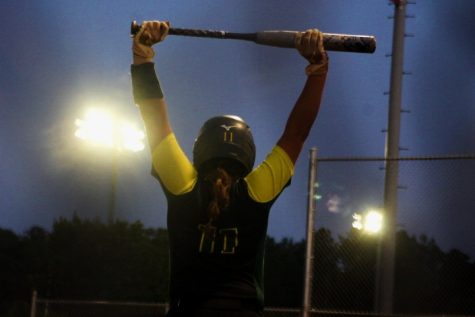Minors continuously exposed to teen sexualization in media
Today’s youth spends an average of six to nine hours a day on their electronic devices. Rest assured, according to the Washington Post, about 20% of that time is spent watching shows and movies. It makes sense that kids would start to compare themselves to the characters on the screen. The problem arises when those characters are constantly put in sexual situations and are played by actors in their 20s. Shows like Riverdale, Pretty Little Liars, Insatiable and Degrassi consistently sexualize high school teenagers, which leads to body image issues, eating disorders and pressure on teenagers to meet unrealistic expectations for their age.
If a show’s plot is about teenagers and it is marketed towards teenagers, then the actors should be close in age to the characters they are playing. The SilverTip Newspaper comments on how Veronica Lodge and Jughead Jones of CW’s Riverdale are 17-year olds played by actors in their late 20s. Not only does Riverdale hire actors who look nothing like teenagers, but they also write their characters to perform acts that are not meant for minors. Riverdale episode 2×08 has Betty Cooper, age 17 in the show, performing a striptease dedicated to her boyfriend in front of a club full of adults. Additionally, ABC Family/Freeform’s Pretty Little Liars romanticized relationships between adults and minors by having Aria Montgomery and Ezra Fitz embark on an illegal student-teacher relationship throughout the show. Viewers even created a petition on change.org to stop romanticizing pedophilia, statutory rape, and student-teacher relationships. Although these are things that happen in real life, they should not be romanticized or fetishized in fictional media.
Shows like Riverdale, Pretty Little Liars and Degrassi add to the misconception that teenagers are supposed to be willing to perform sexual acts with each other. Misconceptions like this create expectations within society that everybody is supposed to be developing at the same pace in terms of their sexual development. In the movie Easy A, the main character is pressured into faking her first sexual interaction but is then shamed by her high school for continuing to perform sexual interactions. The boys she fakes them with are pressured into doing so because they are humiliated by others for not being sexually active. This presents the damage done by the media to speed up sexual development when not every teenager is ready to do so.
The sexualization of minors is not only portrayed on shows meant for young adults but it is also found in dolls meant for kids. For example, the Trolls “Giggle and Sing” Poppy doll was called back from shelves because of its provocative placement of the sensor button. According to the Washington Examiner, the sensor button was placed on the dolls’ genital area and made “Whee!” and “Oh!” sounds when pressed. Obviously, Hasbro, the toy company that produced the Troll doll, received backlash from the public and was forced to call back their product.
Dolls also reinforce damaging body image stereotypes on both males and females. According to Quartz Magazine, Barbie introduced tall, petite and curvy body types in 2018. Up until then, female Barbie dolls only had a skinny, hourglass figure for all of their dolls. Brands such as Disney and most of Mattel still use that as a blueprint for their dolls. Although the doll industry is slowly diversifying with their female body types, most of the male dolls have either visible abs or lean bodies. This reinforces to kids the idea that guys have to have fit bodies in order to be considered attractive or be a part of the majority.
Sexualization of the bodies of children contributes to the development of mental health disorders at a young age. The American Psychological Association released evidence in 2007 connecting how the objectification of minors leads to eating disorders, depression, low self-esteem and an unhealthy sexual self-image. The media creates conceptions within society that a minor is supposed to have a certain look even though that minor is still developing. This generates pressure on children to become the ideal body type by whatever means possible. The show Insatiable is about a girl who was considered fat and ugly but became skinny through surgery and is now accepted and admired by society. Shows like this create the idea that someone is not considered attractive if they do not have the ideal body type.
Now there are shows that stimulate discussions about the realistic sexual development of minors. Shows like Big Mouth, Euphoria and Sex Education showcase realistic relationships between teenagers without glorifying and romanticizing them. These shows, unlike Riverdale, teach minors about the highs and lows of one’s sexual development and how it is okay that every person experiences it differently. They tackle topics about sex and body empowerment without sexualizing the characters in them. When the characters are being objectified, the shows demonstrate the trauma and the issues that stem from being sexualized.
Oversexualization has been an issue for a long time, but thankfully, the media is slowly becoming more accepting and is starting to break free of these sexual stereotypes. The progress made so far is not nearly enough for most teenagers to look up at a screen and relate to the characters on them. Whether the cause for that be their bodies, races, ethnicities, sexualities or sexual developments, the media needs to diversify their stories in order to encourage the healthy development of teens.

Clover Hill junior Krisanny is in her second year working hard on the Cavalier Chronicle. What started as a schedule mistake turned out to be a hidden...







